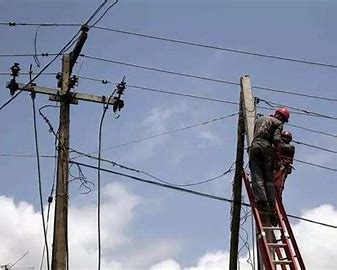FG Scrambles as N4 Trillion Debt Pushes Power Sector to the Edge
FG Scrambles as N4 Trillion Debt Pushes Power Sector to the Edge
By Achimi Muktar
A nationwide blackout is looming large as Nigeria’s electricity generation companies (GenCos) threaten to shut down over an unprecedented N4 trillion debt owed by the Federal Government — a financial time bomb that could cripple the nation’s power supply and plunge the economy into darkness.
The GenCos, under the Association of Power Generation Companies, sounded the alarm on Monday, warning that their power plants can no longer operate under the crushing weight of unpaid invoices. According to them, the Federal Government owes over N2 trillion for electricity supplied in 2024 alone, in addition to N1.9 trillion in legacy debts — a total that now exceeds the entire budget of some federal ministries.
The companies painted a dire picture: they are being paid less than 30% of their monthly invoices for power supplied to the national grid, with some receiving as little as 9% of what is owed. Without immediate intervention, they say, Nigeria’s fragile electricity value chain could collapse — triggering a full-scale shutdown of power generation across the country.
Amid the growing crisis, Minister of Power Adebayo Adelabu has pledged swift action. His Special Adviser, Bolaji Tunji, confirmed that the Ministry of Finance has been engaged and will soon take over the responsibility of settling the debts.
“We are not unaware of this debt. The Minister has made several cases for its immediate resolution,” Tunji said, adding that a significant portion of the arrears predates Adelabu’s tenure.
But the assurance has done little to calm nerves. Many in the industry see a familiar pattern of delayed promises and half-measures, while GenCos are left struggling to pay gas suppliers, maintain their plants, and meet regulatory demands.
In a strongly worded statement titled “Over N4tn Unpaid Invoices Threaten GenCos’ Imminent Shutdown”, the GenCos accused the Nigerian Bulk Electricity Trading Plc and other market operators of favouring other service providers while neglecting power generators.
“Despite generating power consumed daily on the national grid, GenCos are the worst hit by the liquidity crunch,” said Col. Sani Bello (retd.), Chairman of the Association’s Board of Trustees. “Without full payment, we can’t buy gas. Without gas, we can’t generate electricity. The country will be in darkness.”
The GenCos emphasized that the current structure — where they have no firm contracts, no guaranteed payments, and are excluded from crucial financial flows in the sector — is unsustainable.
The root of the crisis lies in years of unpaid subsidies, systemic inefficiencies, and weak enforcement of power purchase agreements since the sector’s privatization in 2013. Hopes of relief through the World Bank’s Power Sector Recovery Operation have also dimmed, as the distribution companies (DisCos) failed to meet critical performance benchmarks required for disbursement.
The GenCos have made large-scale investments and ramped up capacity — even restoring dead turbines — only to be left with unpaid bills and a shrinking ability to operate.
Calls for Urgent Action
To avert a national catastrophe, the GenCos have submitted a list of urgent demands, including immediate payment plans, debt securitisation, and an overhaul of the “waterfall arrangement” that currently leaves them underfunded.
Their statement warned, “The collection rate for 2024 has dropped below 30%, and 2025 is not any better. GenCos cannot continue to function without a clear financing structure. If this continues, the electricity grid will collapse, and the consequences will be disastrous for national security, economic growth, and the welfare of Nigerians.”
Offering a glimmer of hope, the Managing Director of the Niger Delta Power Holding Company (NDPHC), Engr. Jennifer Adighije, revealed that President Bola Tinubu is stepping in with a cash-backed plan to secure gas supply for power generation.
Speaking at the 2025 Energy Times Awards in Lagos, where she was honoured as Young Achiever of the Year, Adighije stressed that “the core issue is liquidity. With enough cash flow, we can buy more gas and generate more power.”
Under her leadership, NDPHC has restored two previously offline turbines, adding 230 megawatts to the national grid — a move seen as symbolic of what is possible if the power sector is properly funded.
The power generation crisis is not just a technical problem — it is a governance and financial emergency. If the Federal Government fails to act decisively, the lights could go out for millions, with far-reaching consequences for businesses, hospitals, schools, and households.
For now, the countdown to darkness continues. Will Nigeria power through — or will the country be plunged into yet another avoidable blackout? The next few weeks could decide the answer.





















